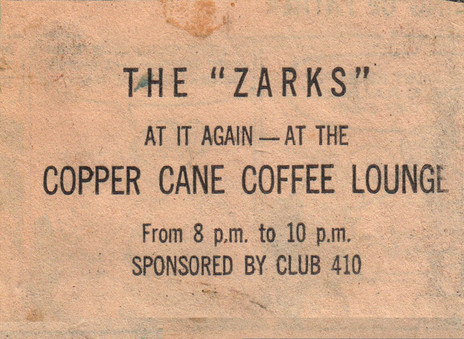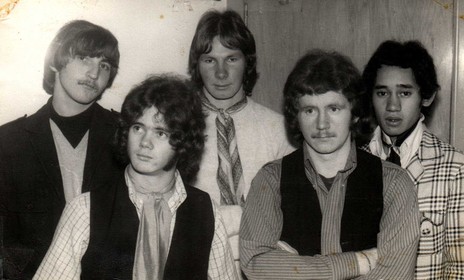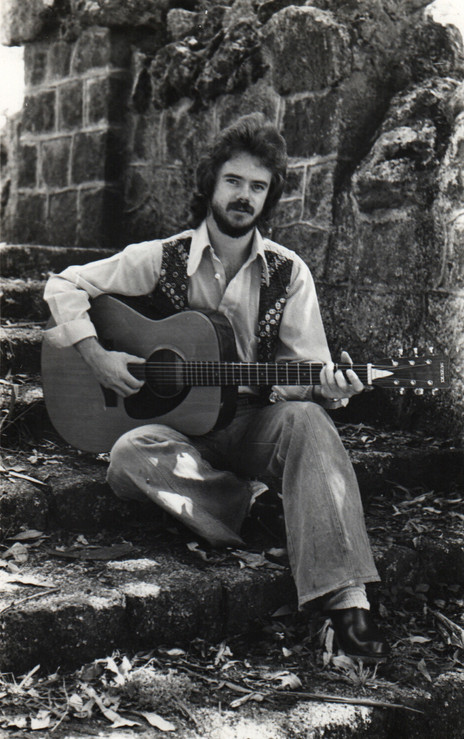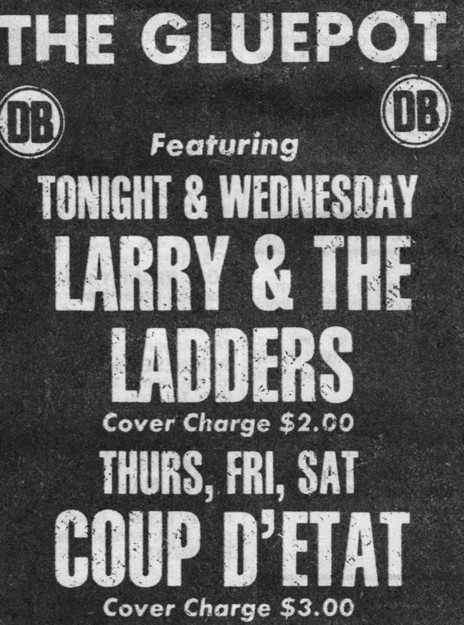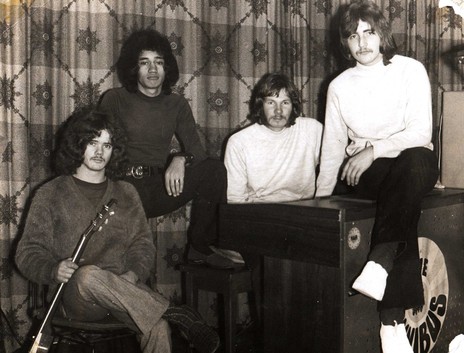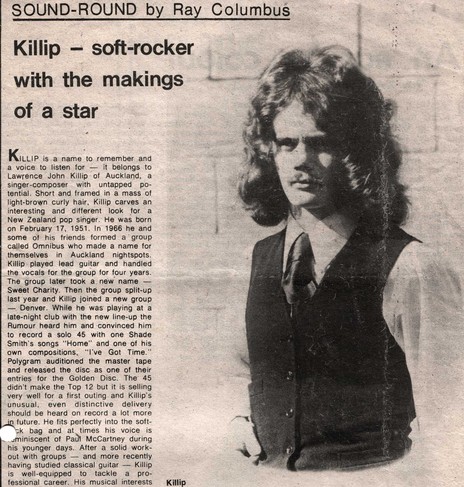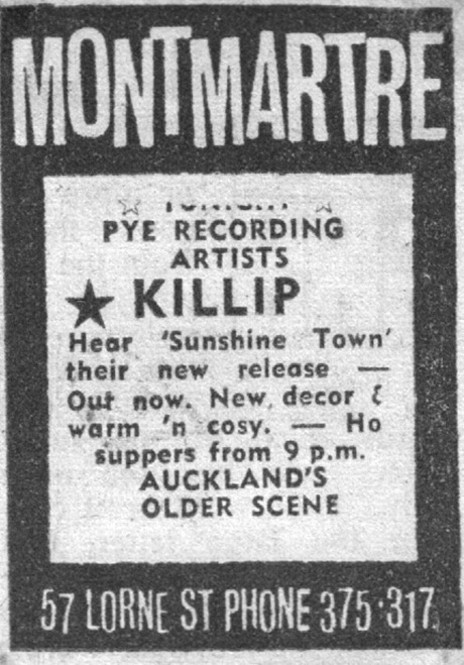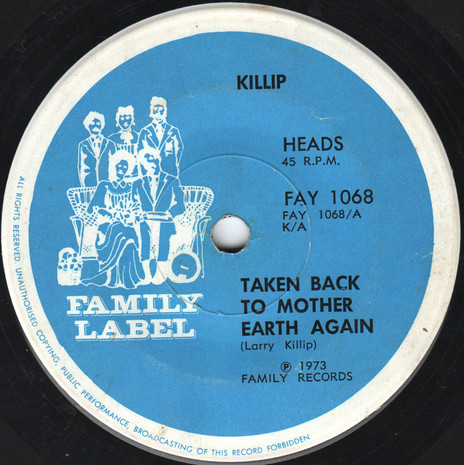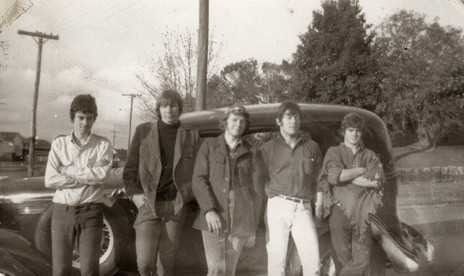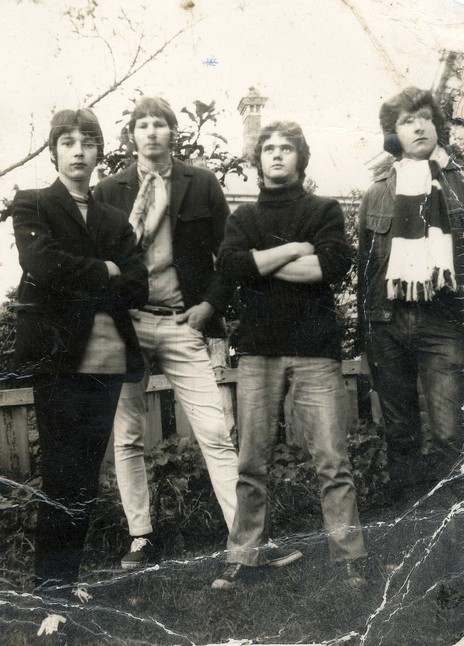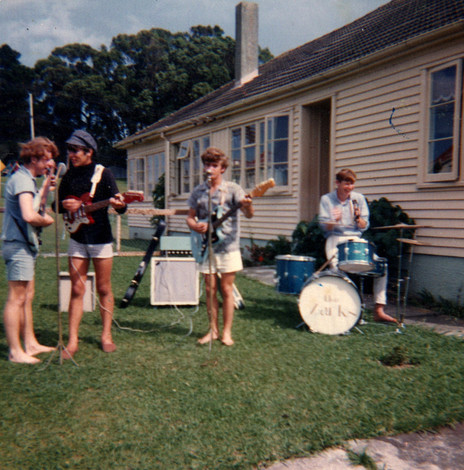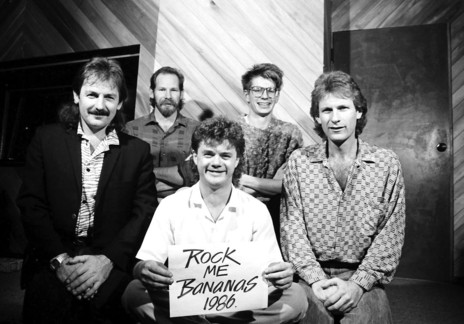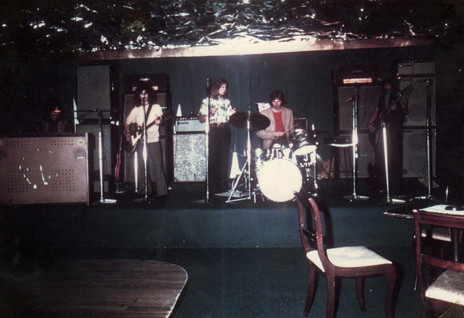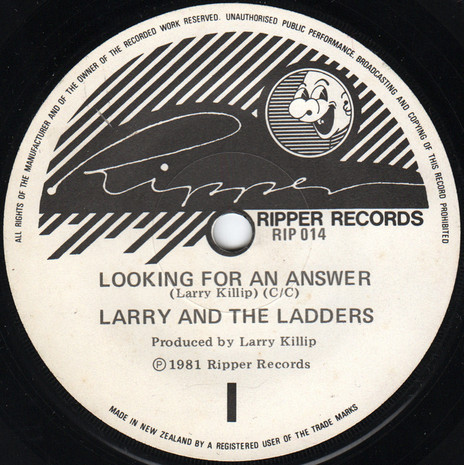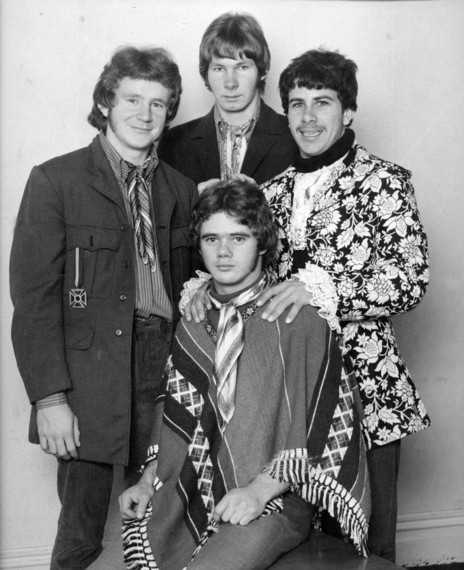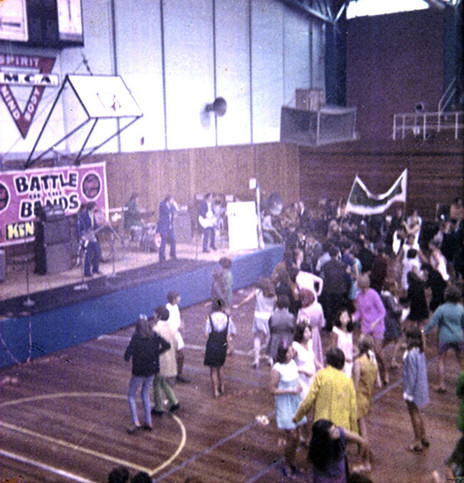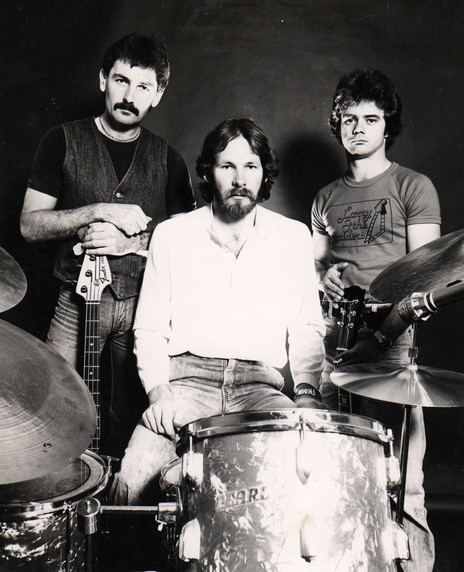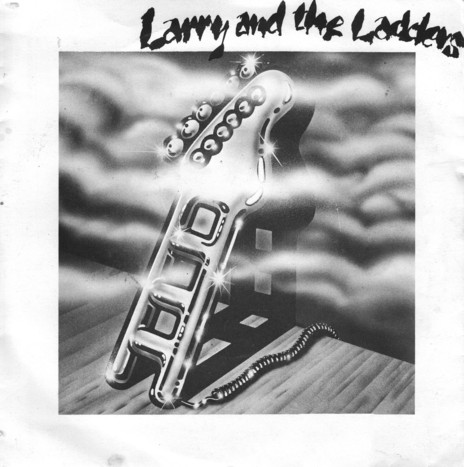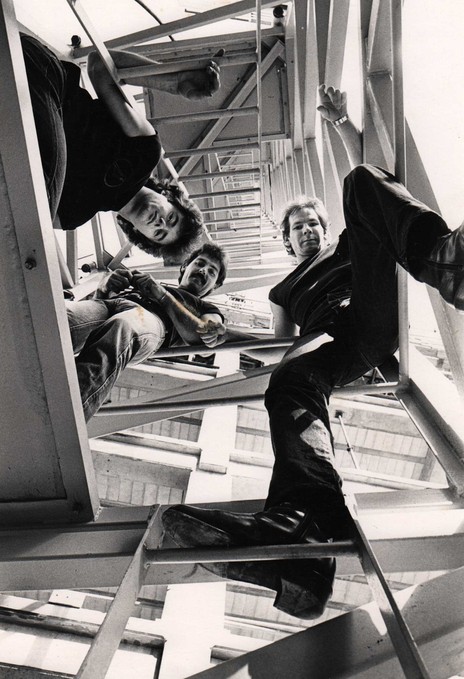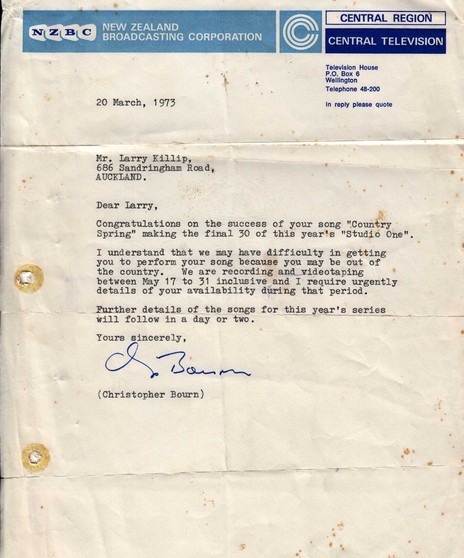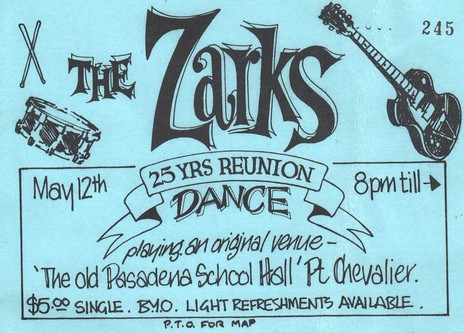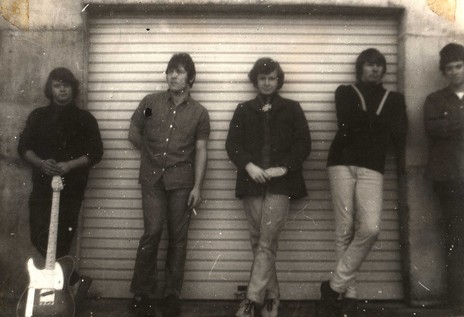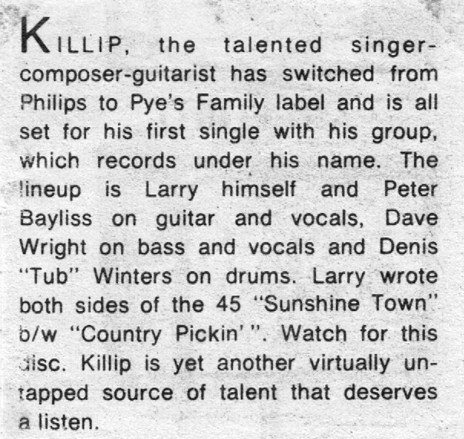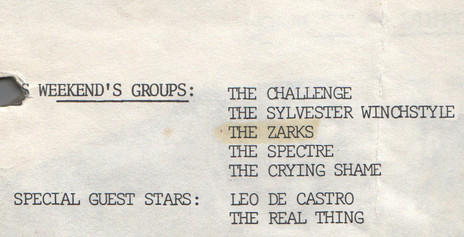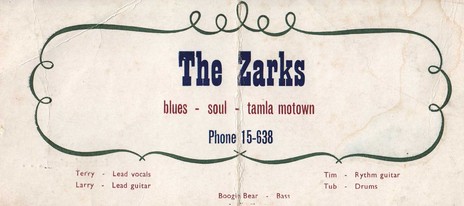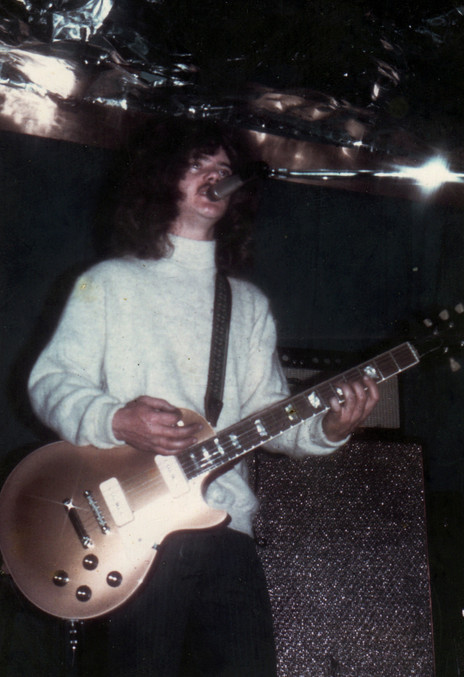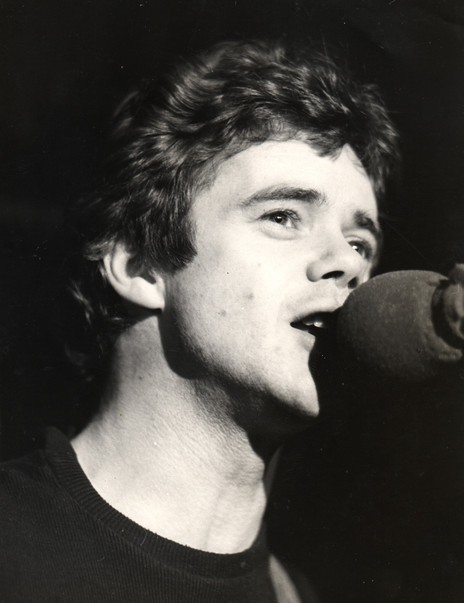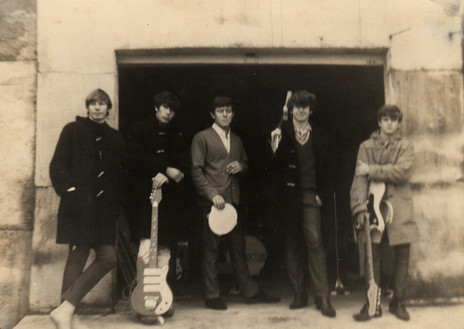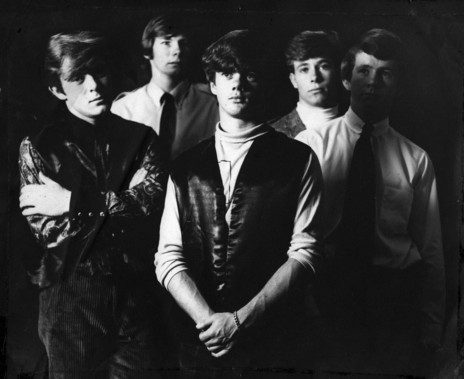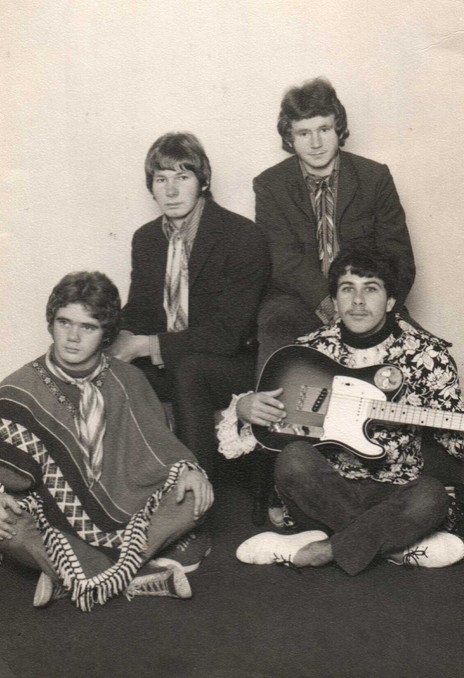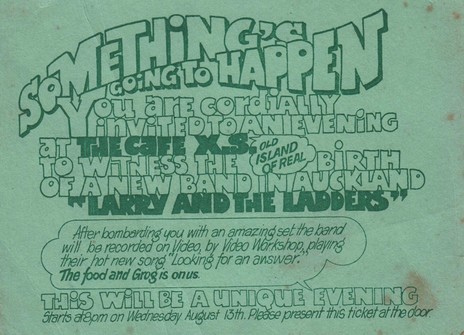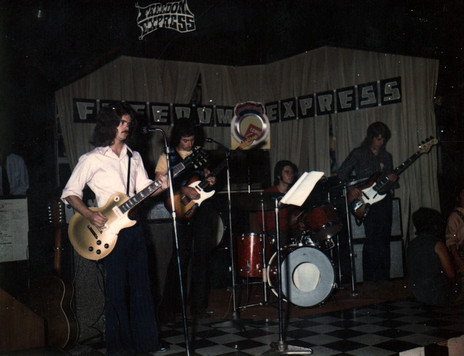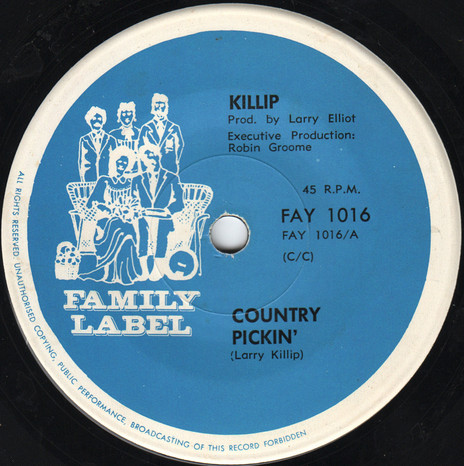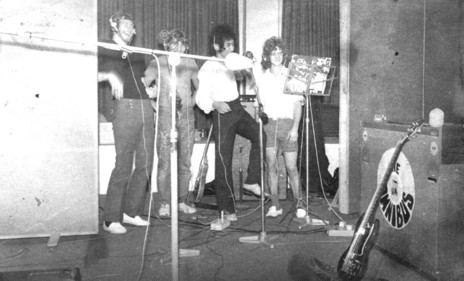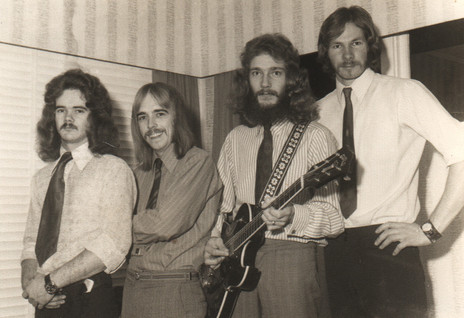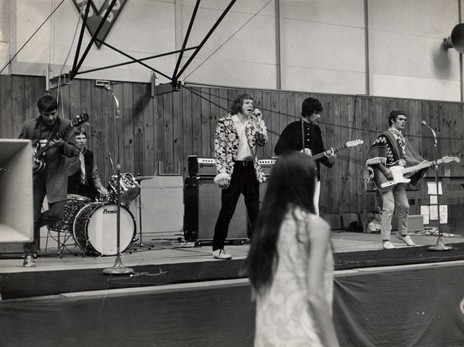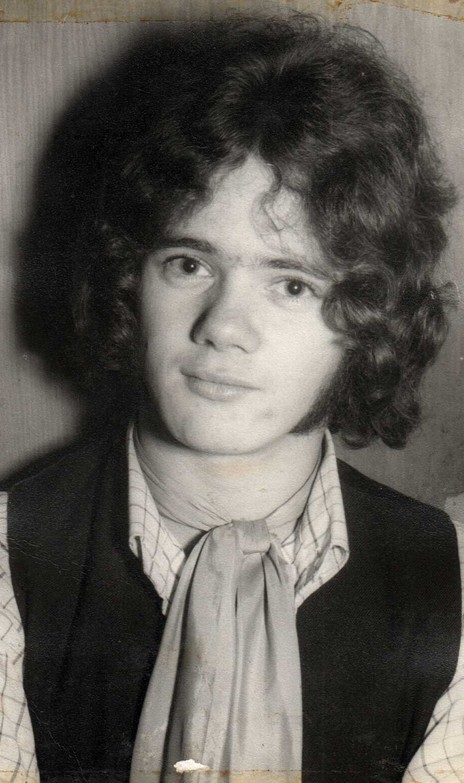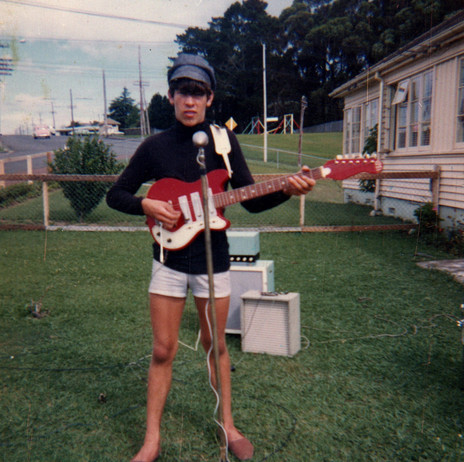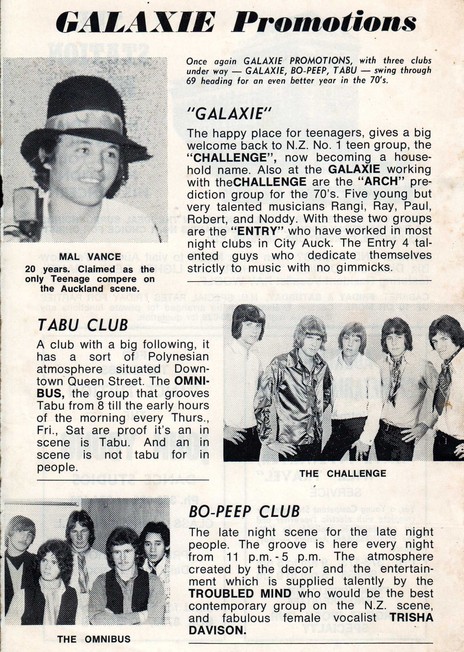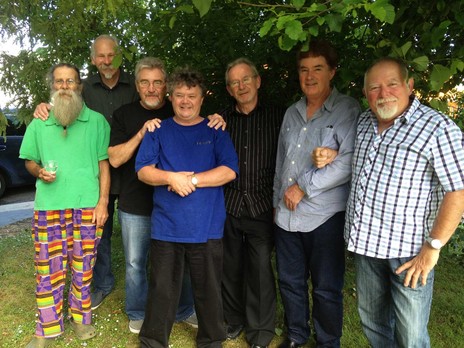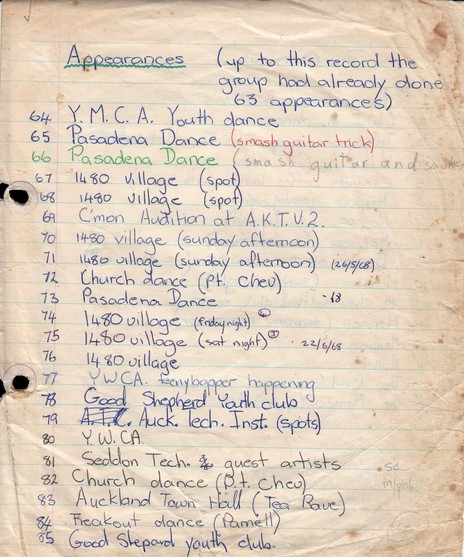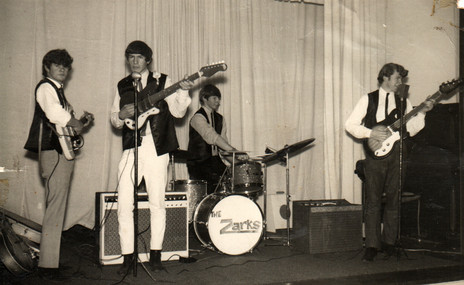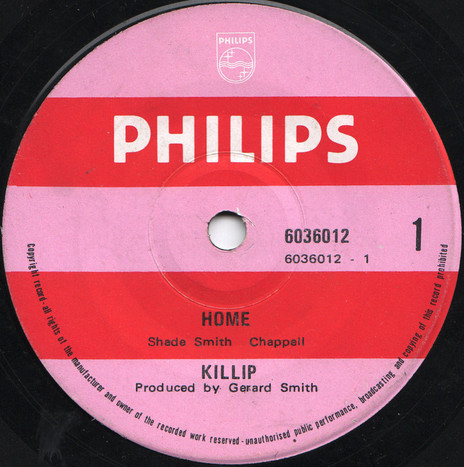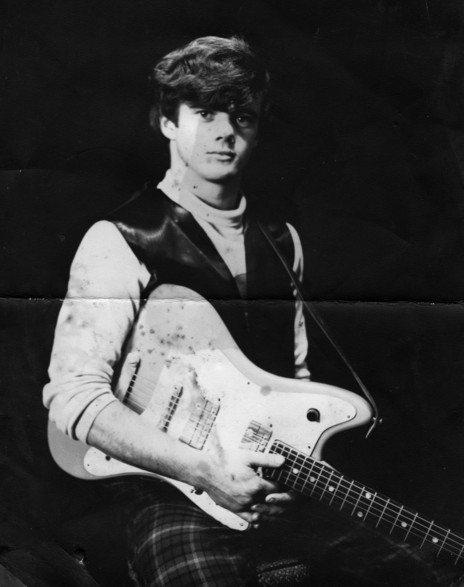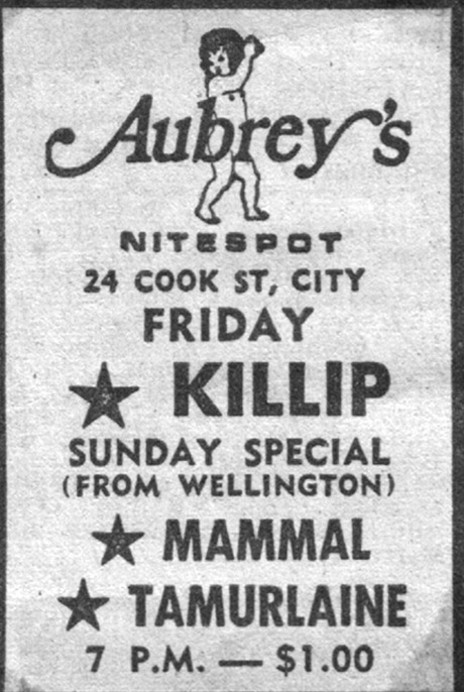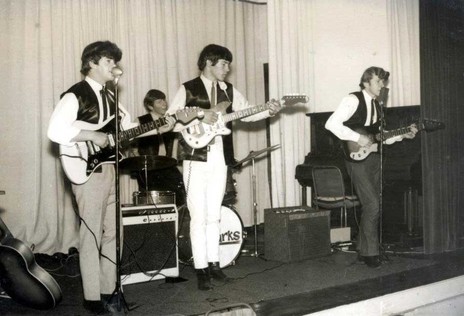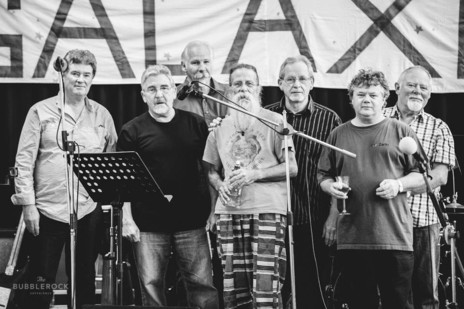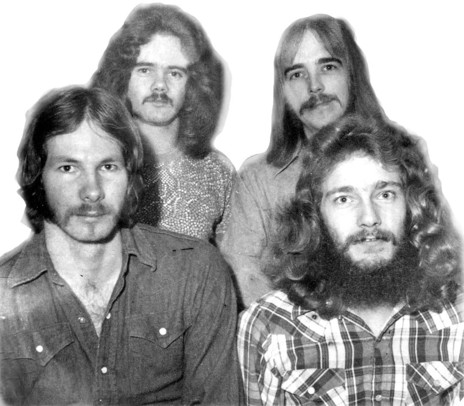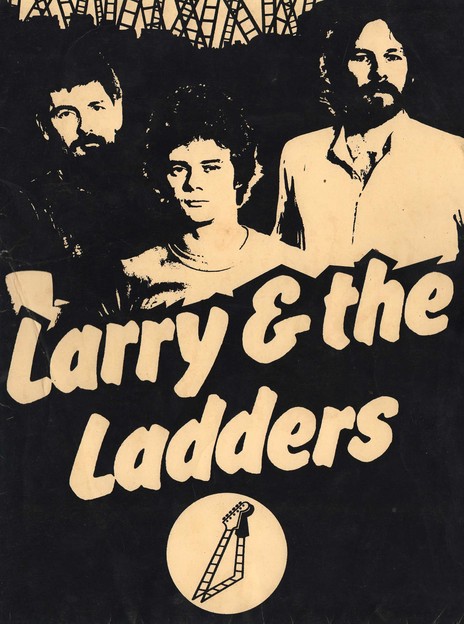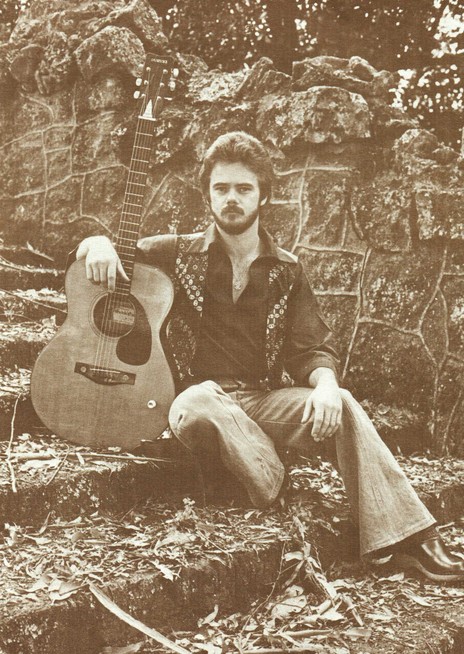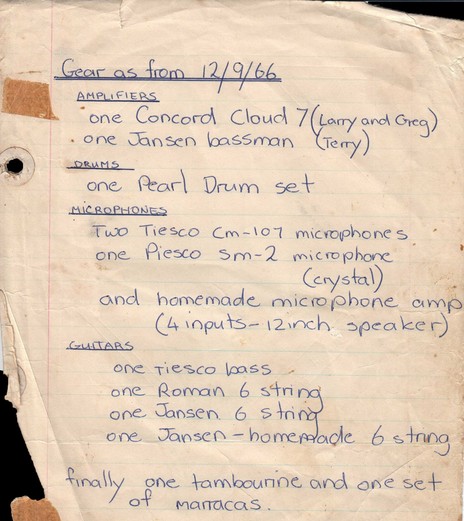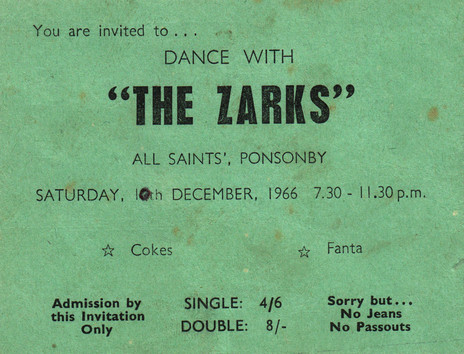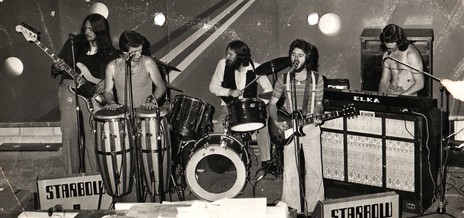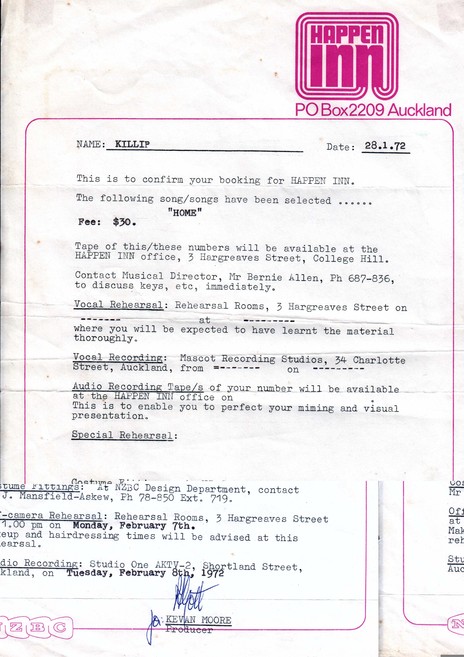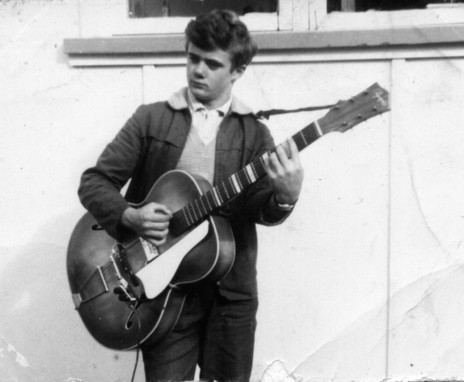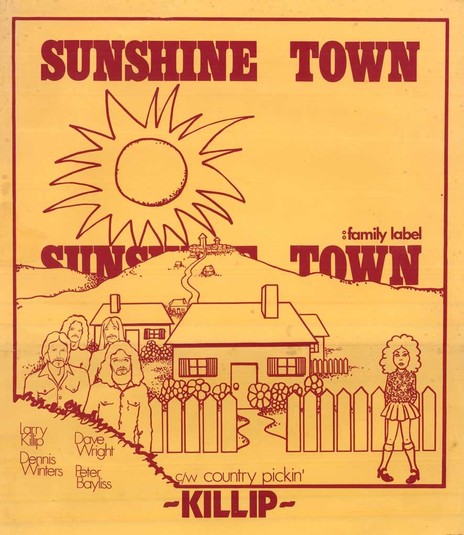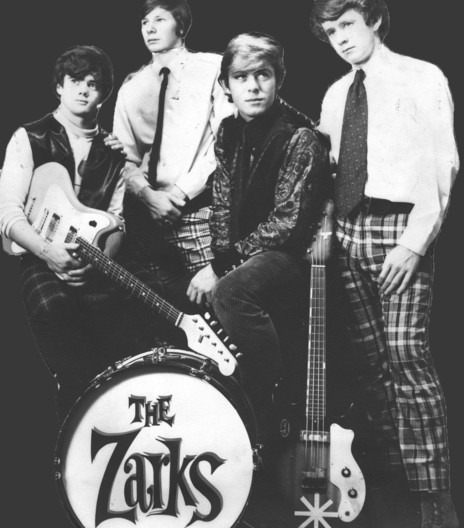Larry Killip is not just a collector, a hoarder, or an obsessive fan, although he's happy to admit to all those things. Rather he is a man who has devoted 50 years to working near the centre of the industry he loves. And whilst he may never have the sort of hit records many of those he records and captures have enjoyed, most insiders would consider him a key player, albeit a humble and self-effacing one. His encyclopaedic knowledge, casual wisdom and generous nature have made him a friend to many, as have his recording skills.
The quartet formed a band and soon named themselves The Zarks.
Larry's story begins in 1965 at secondary school in Mt Albert where he met Greg Sharples, Denis Winters, Terry Bradley and Mike "Boogie" Harrison (the younger brother of bassist John "Yuk" Harrison). The quartet formed a band and soon named themselves The Zarks. It was the beat era, and every second suburban garage seemed to host a band. The Zarks were one of hundreds, and their garage was in Asquith Avenue, Mt Albert. They played their first gig later that year at the Edendale School hall at the top end of Sandringham Road.
School finished the same year and Larry found himself with a printing apprenticeship, but the band continued, albeit with a rotating line-up centred around Killip and Winters, with gigs at local halls and, increasingly, in the hot club scene then flourishing in the city centre – unlicensed venues with names like The Platterack and the 1480 Village, both in Durham Lane West.
The band was shaken in July 1968 when 17-year old Greg Sharples, Killip's best mate and the co-founder, died of a drug overdose from a cocktail of cocaine and heroin (called a speedball), one of the earliest such deaths in New Zealand. A few months earlier, as his troubles escalated, Sharples had been asked to leave the band. Five decades on his death still hurts.
In 2014, talking with AudioCulture, Larry paused, and then very quietly reflected, "We're looking at all of my history here – Greg never had one."
"It was a real shock – they didn't have his funeral until six months after he died because of the whole nature of it – the cops had never had to deal with anything like it before. The court case went on forever. The guy who supplied it went to jail but there was no precedent."
Despite the tragedy and the personal loss, the band regrouped and in the same year recorded a cover version of The Bee Gees' 'Jumbo' in a makeshift studio under a house in Kingsland. It would remain unreleased until 1997, when it would turn up on the mostly bootleg compilation of 1960s New Zealand bands, Number 8 Wire (reissued in 2012 on CD).
They soon found themselves with an early week residency at Maurice and Frank Greer's club The Bo Peep.
A classic hardworking club band playing three or four gigs a week, The Zarks’ beat-era derived name no longer suited the quickly changing times and in 1969 they renamed themselves Omnibus. They soon found themselves with an early week residency at Maurice and Frank Greer's club The Bo Peep (the renamed 1480 Village) plus gigs at The Monaco (Federal Street), The Tabu (off Little Queen Street, now demolished, owned by same people who owned The Galaxie) and The Forum in Takapuna. It was still essentially the same band, but the line-up was fluid as it often was for working club bands of the era. In 1969 bassist Billy Williams joined but soon left to join Classic Affair and later Space Farm and Ticket.
1970 saw Omnibus change their name for a second time; they were now Sweet Charity and had residencies at The Montmartre in Rutland Street and another Greer Brothers club, Hatchett's in Cook Street, where they played with The Human Instinct.
In 1971 the band that had formed six years earlier at Mt Albert Grammar as The Zarks finally split and Larry Killip found himself in band called Denver, once again at The Montmartre. It was here where The Rumour's Gerard Smith and Jacques Koolen spotted him and offered Larry a private deal under the name Killip. A single, 'Home' b/w 'I've Got Time', produced by Gerard Smith, was recorded at Mascot Studios. The A side was a Shade Smith song while the B-side was the first self-composed song Larry Killip recorded. Years later Larry discovered that a third party, not PolyGram, had financed it.
Issued on PolyGram's Philips label, the single had some Auckland airplay although it was not a massive in terms of sales. However, it made sense to stick with the Killip name and a new band was formed. Killip, the band, featured on the NZBC's Happen Inn in February 1972 and spent much of the year with a residency at Newmarket's Royal George Tavern.
Philips declined to release another single but Pye's Rhys Walker, head of A&R for the new Family label, signed the band and they were soon back in Mascot where two originals, 'Sunshine Town' and 'Country Pickin' ' were recorded and duly issued on Family late in the year. A second single, once again self-composed, 'Taken Back To Mother Earth' b/w 'You're Fine', followed, this time recorded at Stebbings in Herne Bay. It was released in 1973, the same year a Larry Killip song, 'Country Spring', was accepted for TVNZ's Studio One songwriting competition, with Larry's vocals placed over a Garth Young-produced backing track for the show. By the time it was broadcast Larry Killip was on his way to the UK. The song featured on the album of the show, thus finding its way into tens of thousands of New Zealand homes.
Larry Killip then did what hundreds of thousands of New Zealanders did and still do, and moved to London.
Larry Killip then did what hundreds of thousands of New Zealanders did and still do, and moved to London. His year and a half in the UK was notable for the fact that he built his first audio mixer there, thus taking the first cautious step into the rest of his career. That aside, his musical output was limited to one unreleased studio session and he returned to New Zealand in 1974 where he married.
Back in New Zealand, the band Killip was revived with residencies at Phil Warren's Monaco and Johnny Tabla's Tabla Club (under the Civic Theatre). Festival spots for Larry included Peter Terry's Waikino Festival (as part of Starbow – the briefly reformed Sweet Charity) and its successor Nambassa, where Larry Killip played solo before the headliner. "I was on right before the Little River Band,” he says. “I was shitting myself but the crowd was just amazing.”
By 1975 Larry Killip was using his studio expertise in his Sandringham Road house where he created a small but very active studio, which he ran when wasn't working at his daytime printing job. Clients were many and over the next few years included Space Farm, Makuini Menehira and Murray Partridge.
In 1979 Larry joined the former Larry's Rebels rhythm section of Viv McCarthy and Nooky Stott in a band called Chicane.
Then in 1980 he fortuitously answered a small advertisement in the New Zealand Herald for a sound engineer. “There was an ad in the paper for a sound guy. This never happened; you simply never saw such a thing. With my studio I had enough bits and pieces of equipment – I'd gotten a Revox tape deck off my uncle – and experience. So I was pretty set up to be that guy.
“I arrived the interview for that job with a part of a mixer I'd made in my hand. Back then you usually had to work for the NZBC for 100 years to break into the industry – but it turned out that the company were dead set against importing the rules and regulations from the NZBC. They wanted to bring in free spirited guys to do video and such.
“So I got the job. I was given this little 8-track room called Genesis Sound – it was in Cook Street at the time and I was in heaven. It was a little place but I started to meet people. And then I thought "we could record the band on the weekends". It being a TV studio, they had a big room next to the studio where they did their filming, so that's where we did it."
"The band" was his new group, Larry and The Ladders, with former Zarks drummer Denis Winters, and bassist Garry Clarke.
"The band" was his new group, Larry and The Ladders, with former Zarks drummer Denis Winters, and bassist Garry Clarke (ex-60s teen stars The Challenge and Australian 1970s blues-rockers Carson).
The trio settled into the weekends at Genesis and soon had an album worth of material. Eldred Stebbing offered the band a deal with his Key label but as part of the deal he required that Larry and the Ladders re-record the album at his Jervois Road studios. Killip declined and Bryan Staff picked up a couple of tracks for his indie label, Ripper. The single 'Looking For An Answer' b/w 'Finally Woke Up', a couple of Killip originals and produced by Larry, was released in June 1981. Despite decent reviews it didn't trouble the charts, but it did gather a little airplay in Auckland, notably on Radio Hauraki in the evenings.
Six months after starting at Genesis the studio got the contract from Radio With Pictures to film and record Sweetwaters 1981. Commissioned by RWP's Peter Blake, the intention was to record every band at the festival. "So we did – we sat in a van with an 8-track with feeds off the front desk and recorded the lot, local and international."
Some were used for the TV show but over the years Killip has given a few of the surviving tapes to the relevant bands, keeping only a copy of the complete Split Enz show for himself.
A video clip was also created for the Ripper single, funded by the band. A line-up change in in The Ladders saw Garry Clarke replaced by Greg O'Donnell (ex-The Music Convention) and a new record deal, this time with the major label RCA. 'She Came' (written by Larry) with 'Freeway Bite' (a Greg O'Donnell song) on the flipside, was released in early 1982, once again recorded at Genesis.
This time the response was initially a little more hopeful, with Radio Hauraki adding it to the daytime playlist and spinning it regularly – for a while at least. Larry continues, "It was just getting off the ground because of that airplay when they introduced 'research'. As part of that they instantly dropped a lot of local records and that was that …"
RCA still had faith in Larry Killip though, and a solo single, ‘Fire & Thunder’, issued under the appropriate name of Solo, was released in 1983, but it achieved little.
In 1984 Genesis moved to Liverpool Street off Queen Street and changed its name to Echo Park. Ardijah and Car Crash Set both recorded albums at Echo Park and Killip also engineered albums there with Gray Bartlett, including his platinum album Together Again (with Brendan Dugan and Jodi Vaughan), and Francis Sect, as well as honing his jingle writing and production skills.
Larry Killip left Echo Park in 1991, moving to Bill Lattimer's The Lab Recording Studio. There a deal was struck for Larry whereby he could record his bands and his own advertising projects in the day, while The Lab recorded their artists in the evening. There he guested on the 1994 debut album Old Skool Prankstas by 3 The Hard Way.
In 1999 Larry Killip achieved second place in the Pop/ Rock section of the South Pacific International Song Contest with his song 'It’s Only Human Nature'. A concert in Perth featuring the winners was cancelled when the main organiser suddenly died. It was, as Larry said in 2015, "the story of my life".
In the early 2000s Killip moved to his own home basement studio, where his production and jingle credits continued to grow, with Evan Silva, David Curtis, Glen Moffatt, and Grant Chilcott (plus countless hours of commercial work) being added to the CV. Rare is the evening where a Larry Killip soundbed is not heard on New Zealand television.
Three Larry Killip solo albums were self-released, Wild Sky (1991), Good To Getaway (2004), and Never Going Back (2007) and the UK indie label Gap issued a compilation of his earlier work in the same year.
The debut single by Killip, 'Taken Back To Mother Earth', was re-released on the EMI album Under The Southern Moonlight (The Kiwi Rock Scene 1970-75) in 2008.
